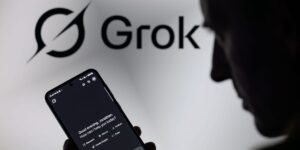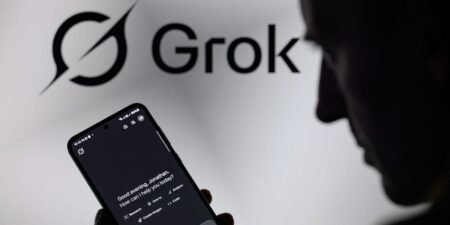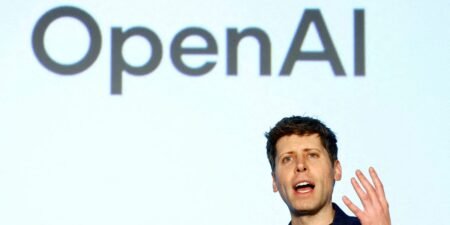It’s not every day that a CEO’s 2,500-word response to an employee engagement survey goes viral. But that’s exactly what happened last weekend, after AT&T CEO John Stankey sent a memo to his managers that my colleagues Dominick Reuter and Katherine Li published for the entire internet to see. Upon first reading it, I laughed at just how blunt Stankey was in his admonishment of his staff who apparently complained in the company’s survey. Here goes another executive lashing out at frustrated employees, I thought.
But the more times I read it, the more I saw something deeper: perhaps the clearest attempt yet by a major CEO to rewrite the terms of the workplace in contemporary corporate America. Last year, in an essay about the changing relationship between employers and employees, I argued that decades of layoffs, slashed benefits, and hardline management killed off our longheld norms around workplace loyalty. But I had never heard the head of a large corporation actually admit that. Now, here was Stankey — the CEO of a 140-year-old company that once epitomized corporate loyalty — declaring the death of loyalty himself. “Some of you may have started your tour with this company expecting an ’employment deal’ rooted in loyalty,” he wrote. “We have consciously shifted away from some of these elements.”
That “employment deal” Stankey references is known by another name in organizational psychology: the psychological contract. As I wrote last year, it’s the set of things that employers and employees believe they owe each other and are owed in return. Usually, these beliefs go unsaid — they’re more inferred by the totality of a company’s culture. What’s unusual about Stankey’s note is that he goes on at length making the implicit explicit, telling employees what they’re right to expect from the company and what they aren’t. Stankey says his workers deserve a transparent career path, a functional office, and the proper tools to do their jobs. But he says they’re wrong to expect promotions based on tenure, the flexibility to work from home, and something about “conformance” that I can’t decipher for the life of me. Most of all, he says, don’t expect loyalty.
If there’s one thing Stankey gets right in this memo, it’s his attempt to spell out these expectations. This shift from what he calls a “familial” culture that takes care of its employees to a “market-based” one has been going on since the 1980s: The days of lifetime job security and pensions are long gone. But CEOs have rarely acknowledged the change, because they’ve gotten a lot of hard work out of their staff who still believe they’ll be taken care of in return. At least Stankey is clear: He won’t even pretend to be loyal to his workers. The first step to repairing the broken psychological contract in today’s workplace is having an open conversation about what those new expectations exactly are.
More and more CEOs are adopting this strategy of management by fear, emboldened by a white-collar recession that leaves disgruntled workers few places to go.
The problem, though, is that Stankey’s memo isn’t so much a conversation as it is a rapid-fire dictation of terms. He offers virtually no room for negotiation, dismissing his dissatisfied employees for “lamenting disruption” and telling them “your professional expectations might be misaligned with the strategic direction of this company.” In other words: Get out. It’s ironic that he wrote this in response to an engagement survey, which exists for the sole purpose of delivering workers’ unvarnished feedback to executives. Stankey clearly has no interest in listening to it.
Even more, there’s remarkably little that Stankey offers employees in return for the “commitment” he asks from them. The things that he says employees can expect from the company — like a “functional facility” to work in, perhaps a reference to the lack of desks when AT&T brought everyone back into the office earlier this year — are so basic they’re laughable. You deserve to have a desk to sit at in this office we forced you back into is hardly a rallying cry. “He’s not giving managers any resources to motivate their employees,” says Denise Rousseau, a professor of organizational behavior and public policy at Carnegie Mellon University who coined the concept of the psychological contract. “He isn’t creating a new psychological contract — he’s just ending the old one.”
The only real upside he offers to employees for the commitment he demands is continued employment. In a memo filled with militaristic, drill sergeant language, he cites a quote from an army general that sounds like a veiled threat of unemployment: “If you dislike change, you’re going to dislike irrelevance even more.” He’s trying to scare employees into working hard. More and more CEOs are adopting this strategy of management by fear, emboldened by a white-collar recession that leaves disgruntled workers few places to go. And if a few do leave, great: With AI allowing smaller teams to do more work, companies are trying to cull their headcount anyway.
As I’ve written in a series of stories this year, this hardline approach backfires in all sorts of ways. Even if the vast majority stay, the people who leave are typically the highest performers. Second, the job market will eventually recover, at which point AT&T risks a mass exodus. And most importantly, there’s now decades of rigorous research showing how fear is a terrible way to get the best work from your employees. Faster work? Maybe. But it’ll be sloppier, less creative, and ultimately less innovative at a time when companies desperately need their teams to stay ahead in the age of AI. Stankey refers to “management science” in his memo, but he’d be smart to study up on what the management science actually shows. (If he did, he would also find that there’s virtually no empirical evidence to suggest that a fully in-person workplace performs any better than a hybrid one.)
The risk, Rousseau says, is that other companies see Stankey’s heavyhanded attempt at rewriting — or ripping up — the psychological contract and feel emboldened to follow suit. CEOs tend to copy each other, and executives from Meta’s Mark Zuckerberg to Uber’s Dara Khosrowshahi and Shopify’s Tobias Lütke have all hinted in recent years that they’re done trying to accommodate their employees. What makes Stankey’s memo notable is that it could have come from any one of the CEOs atop our largest corporations today. If this is the direction corporate America’s headed, that will make work less enjoyable, motivating, and meaningful for the vast majority of us — which will mean our employers will get less inspired work from us.
That would have alarmed the Stankeys of the past. But maybe they think they don’t need our inspired work — not when AI’s doing more and more of the coding, writing, coordinating, monitoring, and analysis that happens inside their businesses anyway. The employees who were once their most prized asset, the thinking goes, feel more like deadweight now. Which is probably why CEOs seem so comfortable now treating them with so little dignity and empathy.
Corporate America can’t demand commitment without offering its workers an equal commitment in return. It just doesn’t work.
That’s a mistake. In a world where AI makes workforces smaller, the potential impact of each employee expands. And that ends up raising, not lowering, the stakes for attracting and retaining the very best people. It’s a paradox the smartest minds in AI already recognize. “I truly believe we can go super super far without growing more,” Kian Katanforoosh, the CEO and founder of the software startup Workera, who also teaches Stanford’s deep learning class, recently told me. “But we need to have the world’s absolute experts in what we do.”
Meta is doing that by throwing around $250 million pay packages. Most companies can’t afford that. Luckily for the non-Metas, there’s still a tried-and-true way to inspire great work: Give staff a compelling reason to make the effort.
AT&T once did that by taking care of its employees for life. Stankey was right to call it “familial” — it was a literal family for some, like the writer of this 1996 essay in the New York Times I stumbled upon. Not only was this guy a long-time AT&T employee who had risen from the ranks of a software-testing temp, but he was the son of two AT&T employees, whose sisters and brother-in-law also worked for the company. He was a proud AT&T brat. At every turn his father urged him to stick with the company. “To him, the company wasn’t a job,” he wrote. “It was a way of life.”
In today’s economy, the enticements will probably need to be different from the cradle-to-grave care these businesses once promised. Fixing our fractured world of work starts with figuring out what those enticements will be, so we can forge the psychological contract of this new era. Corporate America can’t demand commitment without offering its workers an equal commitment in return. It just doesn’t work. Unlike machines, human workers don’t perform just because we’re told to.
As companies go about this work, a good place to start would be the very employee surveys that inspired Stankey’s memo. Stankey looked at the drop in engagement and saw a bunch of complainers. What he missed was the hope buried beneath their discontent. Some 99,000 workers cared enough to respond — and many of them voiced their frustrations because they believed AT&T could once again be a place they’d be thrilled to give their best work to. Underlying that hope is one message: It’s not too late.
Aki Ito is a chief correspondent at Business Insider.
Business Insider’s Discourse stories provide perspectives on the day’s most pressing issues, informed by analysis, reporting, and expertise.
Read the full article here

















